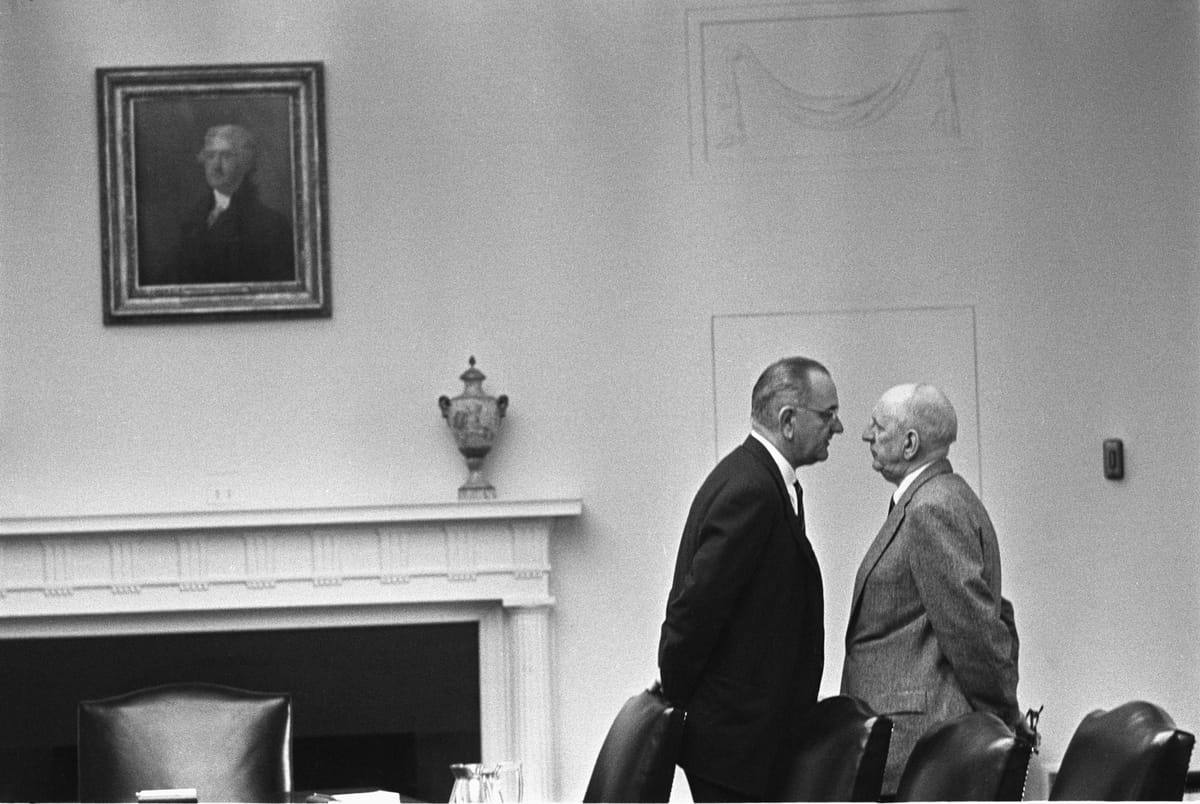Useful Things to Know About Our Politicians

When Lyndon Johnson first became a Senator, he spent hours sitting in the Senate chamber watching the floor action. The Texan – who would go on to become one of history’s most powerful Senate Majority Leaders, who would muscle through the Civil Rights Acts of 1957 and 1960, the creation of NASA, and a whole lot more – was learning up procedure. And he was learning up demeanor.
Those two unremarkable words - procedure and demeanor - don’t get much of a spotlight shone on them, but they are key determinants of what does/doesn’t get done in Congress.
If you know how government works and if you know how the decision makers in government think and feel, you are well positioned to frame an ask a politician can say yes to.
We’ve talked a bit about procedure recently. Today, let’s talk about demeanor. Now if this all feels refreshing as a big tall glass of apple cider vinegar, know that you don’t need to do character studies of all 535 Members of Congress.
What’s useful to know is a bit about what makes the two U.S. Senators and one U.S. House member who represent us tick. A few things in particular.
What Committees They’re On
Senator John Boozman of Arkansas Chairs the Senate Agriculture Committee. Senator Amy Klobuchar of Minnesota is the Ranking Member (i.e. most powerful member of the minority) on that committee.
Politicians choose committees based on district priorities. The more senior a politician, the more likely they are to get their juice committees. So committee choice alone signals what matters to politicians, and the power they have to get that.
For both Senators Boozman (who's been in the Senate since 2010) and Klobuchar (who’s been in since 2006), agriculture is clearly a district priority. And they have the seniority to get two of the most powerful positions overseeing ag policy.
For a bill to become law, it’s gotta pass out of committee first. Knowing what committees our politicians sit on is invaluable to knowing which of them to ask for help on an issue or bill.
You can find committee assignments on one of my very favorite websites: Congress.gov.
Who Politicians Like in Their District
Who do they quote in press releases, what organizations do they visit for ribbon cuttings, who do they fund for earmarks. These paint a more specific, detailed picture of their district or state priorities.
Sure, they might be on the ag committee, but if they post a picture of themselves next to a herd of cows or quote a soybean farmer in a press release, that brings the shape of their priorities into sharper focus.
If we have an ask of one of our politicians, the more that we can find alignment with one of those district priorities, the more relevant (and familiar) the ask becomes to the politician.
If it isn’t authentically aligned, don’t try to shoehorn it. Honesty always beats a clever, but not entirely truthful pitch.
Are They More Workhorse or Show Pony
Some politicians introduce oodles and oodles of bills. Given that only 3ish% of bills pass, a legislator who’s busy dropping bills perhaps might be less busy getting those bills passed. They might be, you could say, a little bit show pony.
But if a politician only introduces a handful of bills, that could be a sign they’re more serious about legislating - if their name is on something, they want that something to get traction. That’s more of a work horse.
The best way to find this out is back at that beloved website, Congress.gov. You can find out exactly what kind of legislating (or not) your legislators have been up to.
A useful caveat here: a politician who introduces a few bills might be more serious about getting those bills across the finish line. But a politician who introduces a great many bills might be good for getting a bill out into the ecosystem and socializing others to the ideas in the bill. It all depends on your objectives.
Knowledge is power, but not all information is knowledge - and we are awash in information right now. So if you’re trying to figure out what to read, how to stay on top of it all, a great power play is to pay attention to what our politicians are doing. Since they’re the ones we have the most power with.
